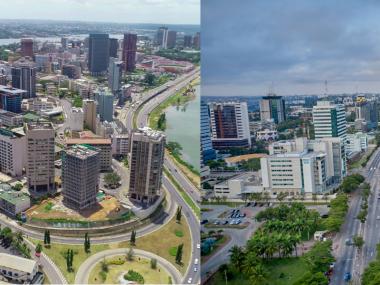Introduction
The development of cross-border/regional agricultural value chains (RAVCs) is regarded as essential for an effective implementation of the African Common Free Trade Area (AfCFTA) agreement by Africa Union (AU) member countries. The development of regional or cross-border AVCs forms part of the measures that are being championed under AfCFTA, towards the achievement of full regional integration. More specifically, the development of RAVCs or cross-border AVCs will enhance intra-Africa trade by making it possible for African countries to reach efficiency gains in production, but also to encourage the private sector businesses or establishments to get integrated into the global value chains. Other anticipated benefits to participating actors or operators participating in the cross-border (or internationalization of) agricultural value chains include the capture of an important share of the value-added along the chain system and positive spill-overs such as skills and technologies transfers, as well as job creation opportunities and wage increases in participating countries. Additional benefits include enhanced trade and increased exports earnings through value additions to products, among participating countries, improved food security, development of local agro-industries, and significant efficiency gains in the region.
In spite of the potential benefits from the development of cross-border agricultural value chains, agricultural production across ECOWAS member countries is still dominated by small-scale producers who struggle to adapt to new market conditions. In relation to this, there are numerous constraining factors explaining the low levels of agricultural productivity within the sub-region. The constraining factors include low application of modern technology and inputs to agriculture, inadequate transport, storage and energy infrastructure and irrigation facilities, resting is continued significant post-harvest losses. Aside the low levels of productivity, agricultural value chains are underdeveloped in ECOWAS regions as in most of sub-Saharan Africa (SSA) countries. The agribusiness value chains remain comparatively small as against smallholder farming in the sub-region. The ratio of value added in agribusiness to upstream farm production is approximately 0.6 in most of SSA countries (Schaffnit-Chatterjee, 2014). It is only a smaller segment of agricultural producers who have access to capital, technology and logistics, and are engaged in larger scale commercial farming and who are capable of exploiting the potential benefits from developed cross-border agricultural value chains.
Against this drop, the United Nations Economic Commission for Africa (ECA), in collaboration with the African Union Commission (AUC) and development partners, has developed the AU-Guidelines for the Development of Regional Agricultural Value Chains in Africa, which was endorsed at the Third Ordinary Session of African Union Specialized Technical Committee (STC) on Agriculture, Rural Development, Water and Environment STC, in October 2019. The Guidelines serve as a framework that provides policy makers in the Member States, as well as Regional Economic Communities (RECs), principles and tools to inform and guide during the formulation of policies intended to promote a viable and sustainable agricultural development process in Africa through the fostering of regional agricultural value chains.
The project on Strengthening Member State capacity to develop regional Agricultural Value Chains will be implemented by ECA, in close collaboration with ECOWAS Secretariat, with a view to promote the application of the AU Guidelines for the Development of Regional Agricultural Value Chains in Africa for improved intra-regional trade in agricultural goods in the ECOWAS region, particularly in Cote d’Ivoire and Ghana.
Objective of the workshop
The aim of the workshops is to provide stakeholders in the cocoa and rice value chains an opportunity to review and provide feedback on the two reports as part of the validation process for cross-border value chains development in Cote d’Ivoire and Ghana.
Specifically, the workshop aims to:
- Present the draft study report of the assessment of cross-border cocoa and rice value chains development in Cote d’Ivoire and Ghana to stakeholders.
- Discuss and review the draft study reports with comments and suggestions from the participants to finalize the study report.
- Review the proposed recommendations for strengthened cocoa and rice value chains based on review of the policy, regulatory and institutional frameworks in Cote d’Ivoire and Ghana.
- Generate consensus from stakeholders on the next steps to actualize the findings and recommendations of the two documents.
Date and Venue
The workshop will take place in each country.
- In Cote d’Ivoire, August 14, 2025, in Abidjan.
- In Ghana, August 20, 2025, in Accra.
